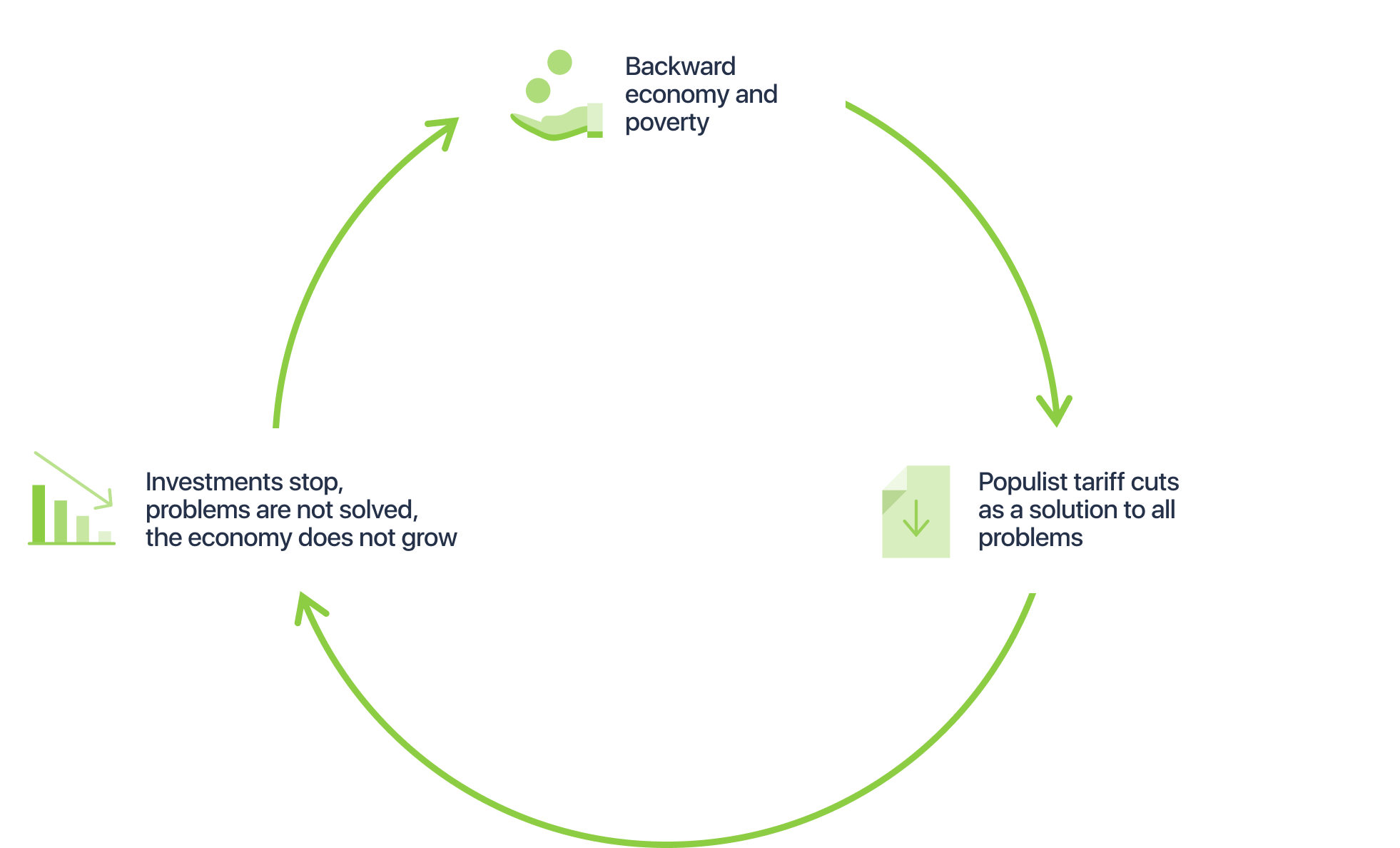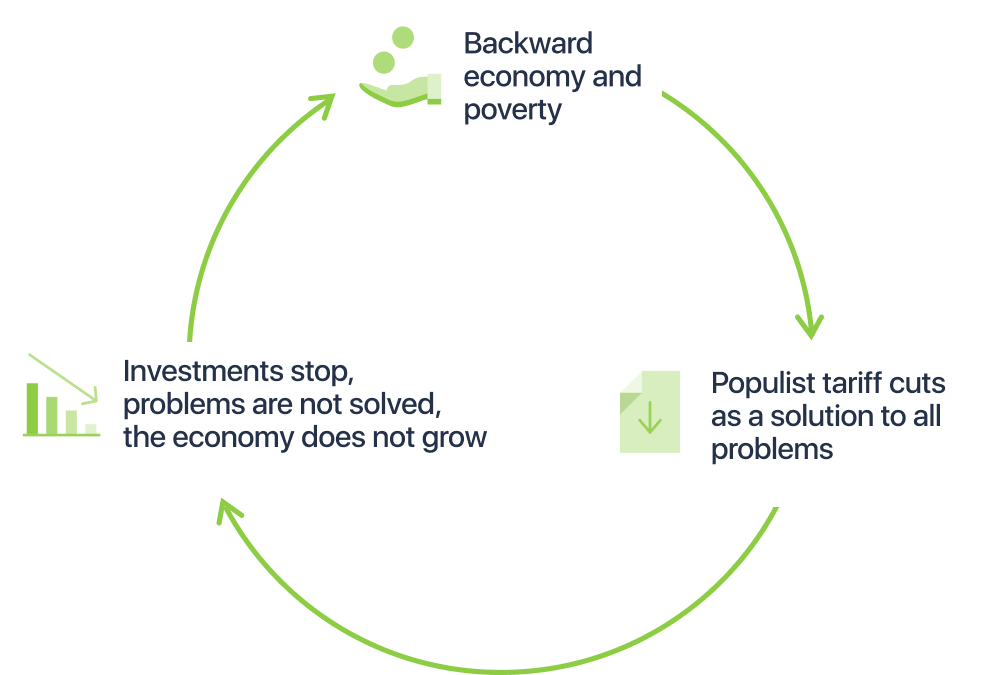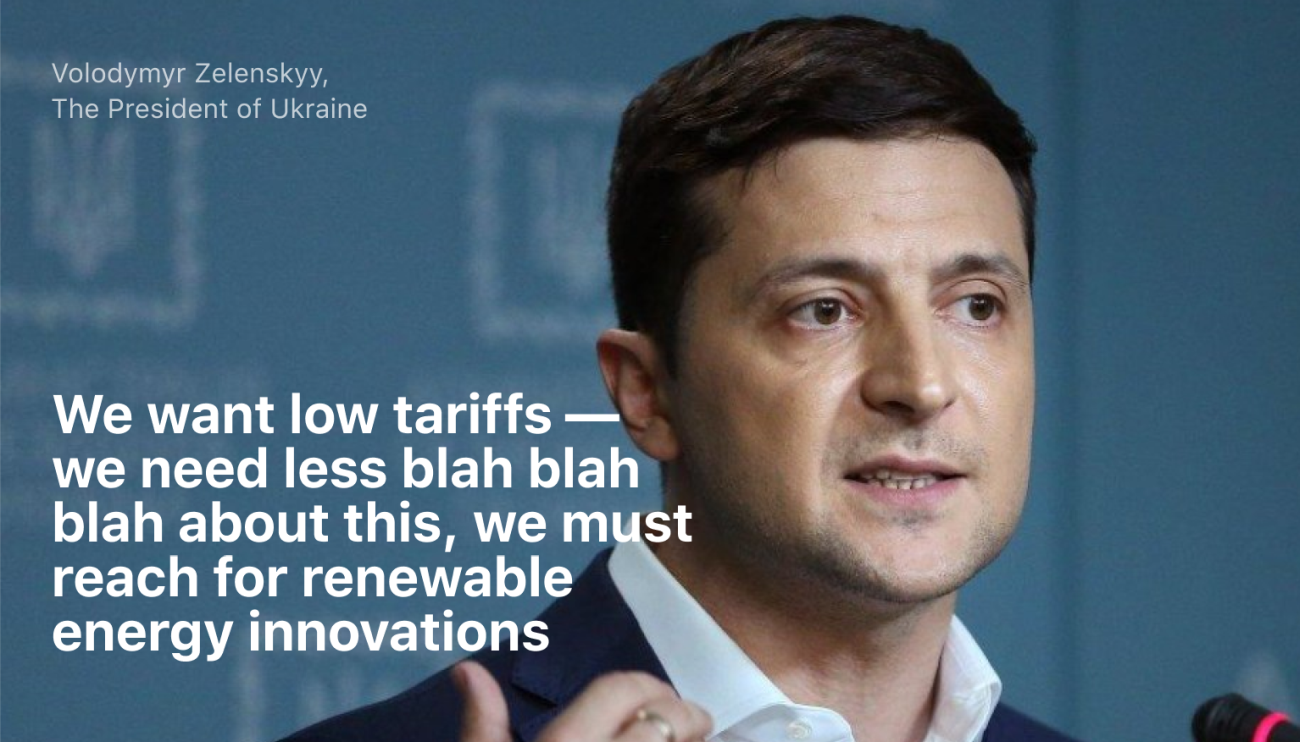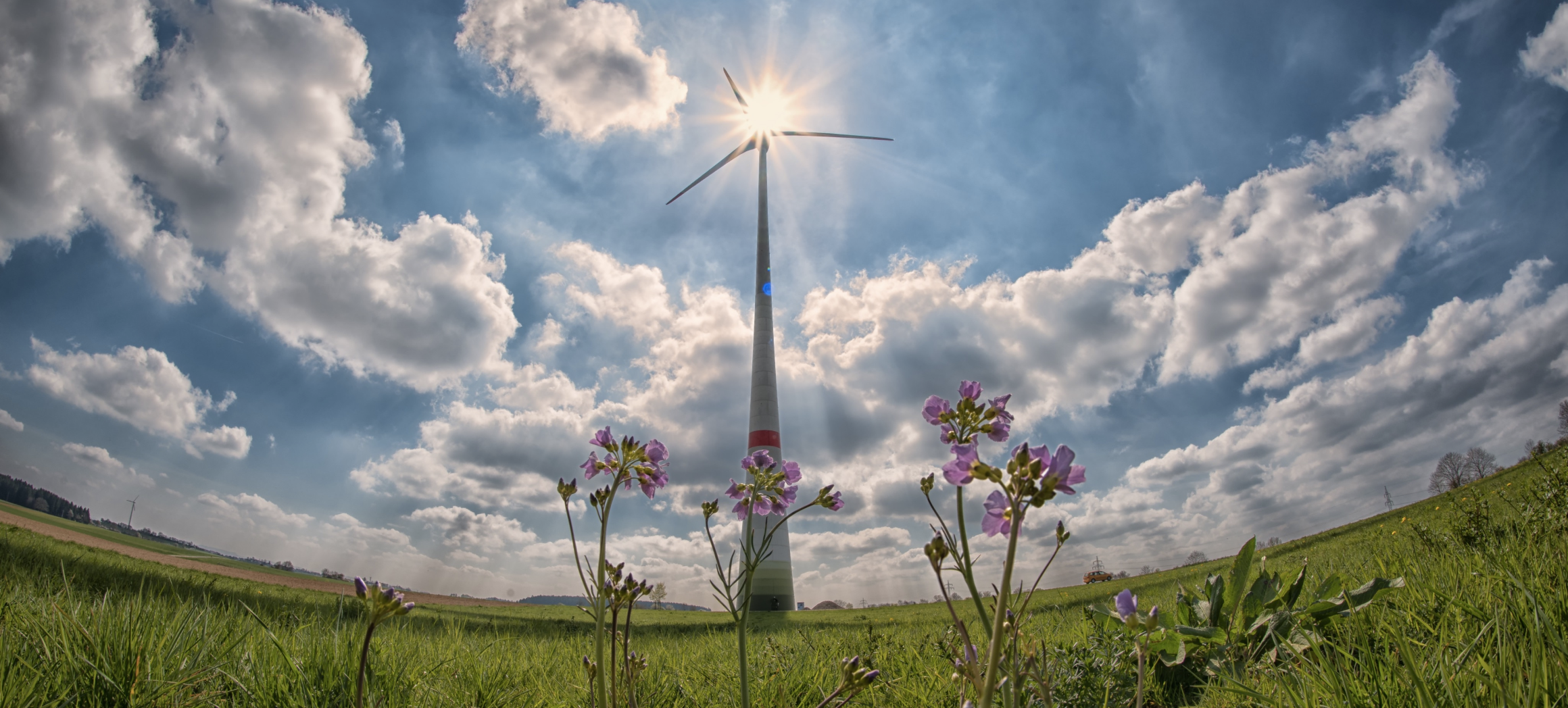The first scenario: populism and return to the circle of poverty
Opponents of the “green tariff” often say that for the development of Ukraine, supposedly, neither green energy nor investment is needed. The only thing needed is to lower tariffs. In particular, the green one. Such statements are part of the general populist trend. According to experts of the Center for Economic Strategy, “the frequent mention of tariffs by politicians and the use of emotionally colored arguments could contribute to the formation of a stable point of view on tariffs”. In particular, that reducing tariffs is the only way to improve the economy of Ukraine.
Ukraine has been living according to this scenario for several years. Citizens of Ukraine are in a difficult economic situation. Almost half of them have no savings. In addition, according to Neil Walker, the representative of the UN development program in Ukraine, almost 60% of Ukrainian people lived below the poverty line in 2017. Perhaps the only thing that remains in such conditions is to seek out quick and easy solutions.


These “solutions” are proposed by populist politicians, frightening with talk of “tariff genocide” and forming a request for tariff changes. The state has to take into account the request — manually reduce tariffs, getting short-term benefits. But the desired changes will not occur. Foreign investors would see that market mechanisms do not work in the Ukrainian economy, and their investments are not protected, so they would stop investing money here. The same applies to local investors. Without cash receipts, the economy is in decline: new jobs are not created, production is not modernized, new industries are not developed. We are again returning to the place we started from — the Ukrainian economic situation remains difficult.
Now this scenario is being played out with a “green tariff”. Even if it is reduced, the price of electricity for the population will not change. The only one who benefits from this is the oligarch Ihor Kolomoyskyi, who owns the majority of industrial electricity consumers (primarily, ferroalloy plants). Instead Ukraine will lose investor confidence, fail to fulfill its obligations to partners to increase the share of green energy and gain an extremely poor reputation of a country that is actively backtracking on renewable energy sources, just when the world is facing a climate crisis.
Simply put, by lowering the tariff, we will be left without money and without international support.
The second scenario: the development of green energy and the future
The Government understand the risks of retrospectively revising the “green tariff”. During the First Re:think investment forum in Mariupol, Prime Minister of Ukraine Oleksii Honcharuk said: “We are civilized people, we understand how financial markets work, we understand what are the interests of shareholders, that you can’t just change the rules retroactively and we don’t intend to do this.”


Is there a way out of the vicious circle that begins with the poverty of Ukrainians and ends with more bad policymaking? Successful cases are valuable in answering this question. Green energy is one of them. It demonstrated that stimulating the investment climate gives excellent results. It’s enough just not to interfere with the natural development of the industry and adhere to established rules.

Under conditions of maintaining state guarantees, investments in green energy will continue, the pace of development of the industry will be preserved. By 2035, the share of renewable energy will increase to 25% — in accordance with international obligations and the energy strategy of Ukraine. In parallel, the “green tariff” for manufacturers will gradually decrease. Ukraine will prove that it is able to launch innovative technology spheres from scratch. All this will make a significant contribution to the economic growth of Ukraine.
In the end, Ukrainians already have experience in successfully launching the market, successfully attracting investment, and successfully growing an entire industry. Without populist promises and unfulfilled predictions. Just as President Volodymyr Zelensky said: “We want low tariffs — we need less blah blah blah about this, we must reach for renewable energy innovations.”
